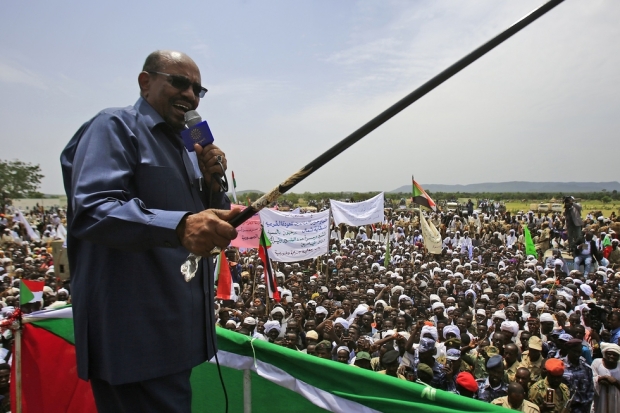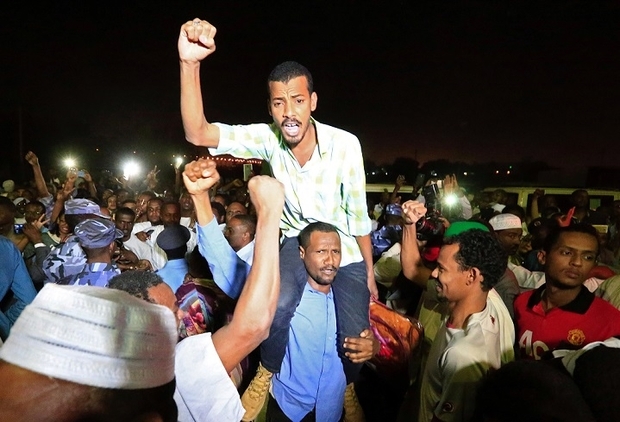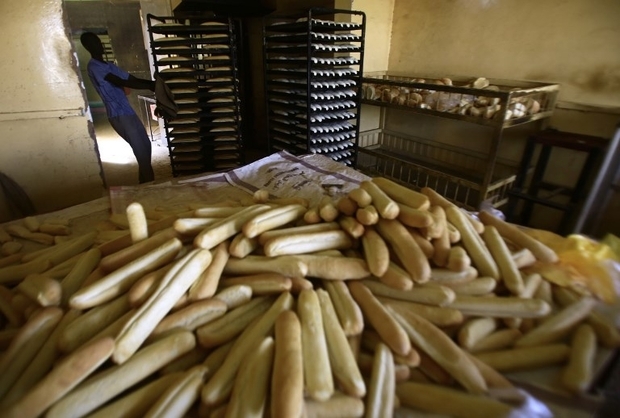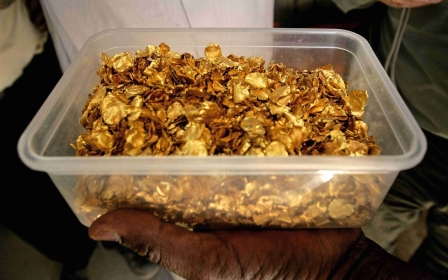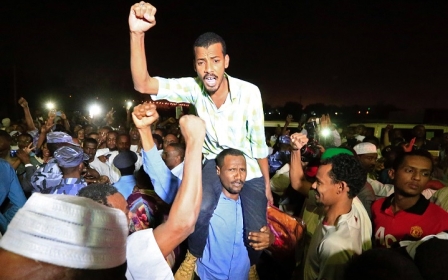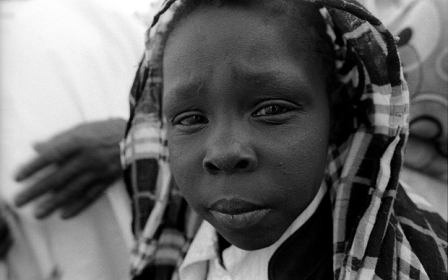Sudan cash spat spells economic and political woe
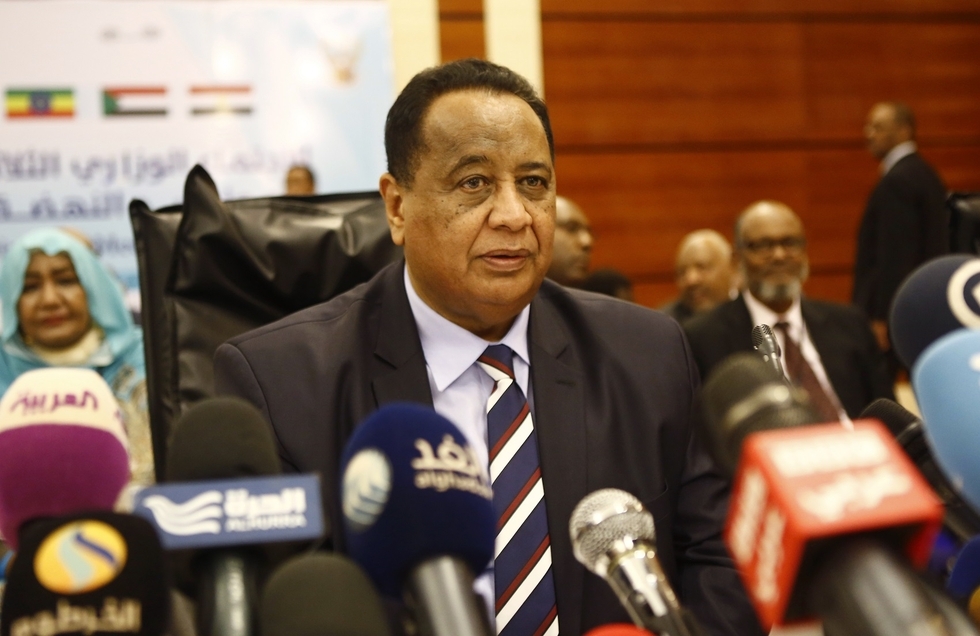
KHARTOUM – Embarrassed by his foreign minister's dramatic speech to parliament alleging that his ministry's coffers had run dry, Sudanese President Omar al-Bashir may have felt he had no option other than to sack Ibrahim Ghandour.
Unfortunately for Bashir, however, the dismissal has only raised more questions about his authority and effectiveness in government, at a time when the country is moving ever closer to an economic precipice.
In fact, by dispensing with his top diplomat and point man on relations with Washington, the president may have made his country’s economic situation only more perilous, and it appears likely a backward step in the impoverished East African country's pursuit of sanctions relief and investment.
Appointed in 2015 and viewed as a pragmatist in a country long considered by the West as a pariah state, Ghandour played a key role in negotiations that concluded with Washington lifting two-decade-old sanctions on Khartoum.
With Sudan facing a spiralling economic crisis, he may have had an important future role to play in keeping the current US administration on side and encouraging further sanctions relief and international investment.
Remarks in parliament last week, however, spelled the end of his tenure as Sudan's top diplomat.
On 18 April, Ghandour stood in front of parliament, asking the body to step in and help cover costs for his ministry, which he said was facing a financial crisis.
The foreign ministry needed $30m to cover its costs, Ghandour said, in the first public acknowledgement by a government official that the Central Bank was struggling to provide foreign currency to cover state institutions' costs.
"For seven months, Sudanese diplomats have not received their salaries, and paying rent for diplomatic missions has also been delayed," he said.
"It seems that there are those who feel that the salaries of diplomats and staff and missions' rents are not a priority."
The next day, news broke that Bashir had issued a presidential decree relieving Ghandour of his position.
Trouble at the top
The speech has garnered a huge amount of attention, with supporters and opponents reacting fiercely on social media and elsewhere.
Some commentators see Ghandour as an honest leader who bravely addressed the crisis, while others criticize him for the disclosure of information deemed a national security threat.
Amjad Farid, a prominent activist and human rights defender, called on the government to resign, saying it was clearly unfit to rule, while renowned US-based Sudanese writer Fathi Aldawi chastised Ghandour for attempting to jump from a sinking ship.
The response is indicative of an increasing polarization in Sudanese politics, including within the government itself.
Political analyst Ahmed Abdul Salam believes Ghandour was clearly hinting in his speech to the mounting internal disputes in the ruling National Congress Party (NCP) and inner circles of the government.
"The disputes have actually reached their highest point," he told Middle East Eye, pointing to the resistance that Bashir's re-nomination as president faced in the NCP's conference last January.
The disputes have actually reached their highest point
- Ahmed Abdul Salam, political analyst
Even before his speech, Ghandour had stirred controversy, with rumours circulating about friction between the minister and Bashir's office.
A spat over presidential aides' interference in foreign ministry affairs was widely reported to have spilled into an open confrontation, with Ghandour offering, then rescinding, his resignation.
However, according to Abdul Salam, the tension between Ghandour and the presidency runs deeper and has links with the foreign minister's management of relations with the United States.
Introduced by then-US President Bill Clinton in the 1990s due to Sudan harbouring militants including Osama bin Laden and Carlos the Jackal who were considered terrorists by Washington, US sanctions have long hamstrung the Sudanese economy.
In 2007 they were extended further in response to mass killings in Darfur by Sudanese government forces. Former finance minister Badr Eldin Mahmoud estimated in March that the 20 years' sanctions had cost Sudan $45bn.
But in recent years Washington's stance has softened, and the lifting of a raft of sanctions in October was seen as a great coup for the government in Khartoum, with Ghandour heavily involved.
"The issue of the normalization of ties with the United States and the preconditions [for sanctions relief] placed by the Trump administration is believed to be another cause of tension between the pragmatist Ghandour and the conservative president," Abdul Salam said, speculating that the two men are in disgreement as to what conditions are acceptable to win economic respite.
Most prominently, this came to a head in 2016 when Taha Osman, then-director of the president's office, met a number of officials and lobbying firms in Washington without Ghandour's knowledge.
Cash strapped
By breaking ranks and publicly highlighting Sudan's growing economic problems, Ghandour also drew attention to the government's inability to tackle the crisis.
The Central Bank flat out denies there has been an issue in funding state institutions.
"We are responsible for paying the expenses of all state institutions," a statement from the Central Bank read, adding that 92 per cent of the 2017 Foreign Ministry budget had been approved.
"Despite the shortage of hard currency, the Central Bank has never delayed payment to the Foreign Ministry's employees, as it understands very well the importance of diplomacy for the future and stability of our country."
Be that as it may, there is no hiding that Sudan is witnessing a crippling economic crisis.
At the beginning of the year, Sudan's parliament passed a budget devaluing the Sudanese pound, while in March inflation rose to 55.6 per cent year-on-year.
Austerity measures have also included cutting subsidies on wheat, electricity and other essential goods, sending prices soaring and sparking wide protests that the government suppressed through a campaign of mass arrests.
Bankruptcy on the horizon
Many signs have recently emerged indicating that the country is moving towards bankruptcy, economist at the American University in Cairo Al-Tijani Hamid told MEE.
"The long queues witnessed in the capital Khartoum since the beginning of April, waiting for fuel and cooking gas and in front of banks' ATMs, give a strong indication that the economy is seriously on the edge," he said.
The lines of people snaking down Khartoum's streets are not the only clues Sudan is on the brink of economic ruin.
National carrier Sudan Airways may be forced to cut 80 per cent of its staff, a state minister for transport announced earlier this month.
Meanwhile, an Indian oil company has filed an arbitration claim in a London court seeking compensation for a project affected by South Sudan’s breakaway in 2011.
For now seeking $98.94mn, India's Oil and Natural Gas Corp will eventually be filing claims for all of the $425mn dues pending on contracts backed up by sovereign guarantees.
And while foreign ministry staff's pay-cheques may be in arrears, so too are those of workers for Chinese and Malaysian oil companies, Hamid said.
A flawed plan
Faced with rising unrest and a sinking economy, the Sudanese government has put an emergency plan into place, forming a temporary presidential Exchange Rate Control Committee in January to stop the Sudanese pound's slide.
The committee is headed by the Bashir himself, who, along with other officials, has blamed the currency crisis on unnamed, corrupt circles and people he describes as "fat cats".
Targeting these fat cats appears the committee's primary concern, as it has implemented wide punitive measures against people and institutions it deems responsible for the country's economic woes.
In March, the director-general of a commercial bank and the head of an insurance company were arrested on charges of currency manipulation.
Earlier in the year, a number of commercial banks had their financial transaction licenses suspended, and the accounts of some private and public companies, such as the Sudatel Telecoms Group, had their accounts frozen.
Meanwhile, in an attempt to stem the drop of the Sudanese pound against the dollar, the government threatened black market traders with charges of undermining the national economy, financing terrorism and money laundering – punishable by death.
However, Khartoum University economics specialist Professor Mohamed Aljak told MEE that the government’s punitive and administrative measures will neither reform the economy nor stop the current deterioration.
He said the government has continued with many of the old economic policies it has pursued for years, despite the adoption of some austerity measures.
"Khartoum has only implemented austerity measures on the lifting of subsidies," Aljak said.
"But the government's other expenditures and the bill of the [1983-2005] civil war have remained as they were."
He added that Khartoum has not taken advantage of the lifting of sanctions to increase productivity and attract investors, instead going in the opposite direction and crafting a budget that mainly depends on taxes.
Normal citizens are carrying this heavy burdon alone
- Mohamed Aljak, economics expert
"This is why normal citizens are carrying this heavy burden alone and feeling discontented," Aljak said.
"Unless the government change its policies and adopts a comprehensive reformation, the deterioration will continue."
No reward
According to Hamid, the government's internal splits have been feeding the economic crisis, but other regional and international circumstances have also had an effect.
The expected reward for a pivot towards Saudi Arabia and the United Arab Emirates and away from traditional partner Iran has failed to materialize as Khartoum wished, despite $2.1bn deposited by Riyadh and its allies into the Central Bank.
Furthermore, Hamid said, Khartoum feels it has not been rewarded for its acceptance of US and Gulf preconditions for sanctions relief, its partnership with Washington against terrorism, and its participation in the Saudi-led coalition's war in Yemen.
"Khartoum's optimism for a quick normalization of its relations with the US after economic sanctions repeal was premature," Magnus Taylor, a Horn of Africa analyst at the International Crisis Group, noted in a recent essay.
"Indeed, the US had been clear that this would not happen without further tangible progress from the Sudanese government, including improvements to its human rights record," he said.
"Khartoum is disappointed with the financial rewards it has received in return, despite also benefitting from Saudi lobbying of the US over sanctions repeal."
Now lacking the experience and pragmatism of Ghandour, the ability of Bashir and his government to win further sanctions relief must remain in doubt.
New MEE newsletter: Jerusalem Dispatch
Sign up to get the latest insights and analysis on Israel-Palestine, alongside Turkey Unpacked and other MEE newsletters
Middle East Eye delivers independent and unrivalled coverage and analysis of the Middle East, North Africa and beyond. To learn more about republishing this content and the associated fees, please fill out this form. More about MEE can be found here.


